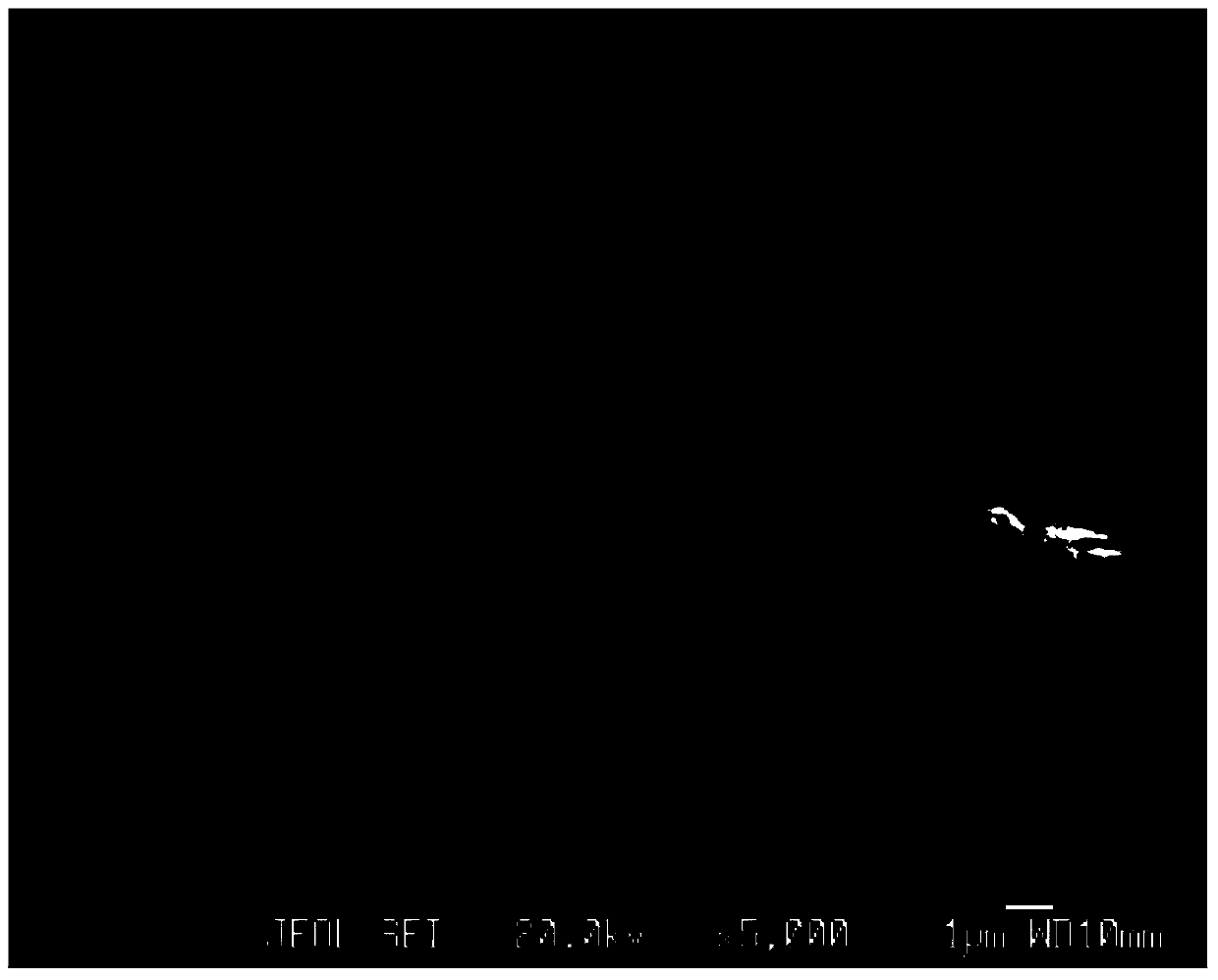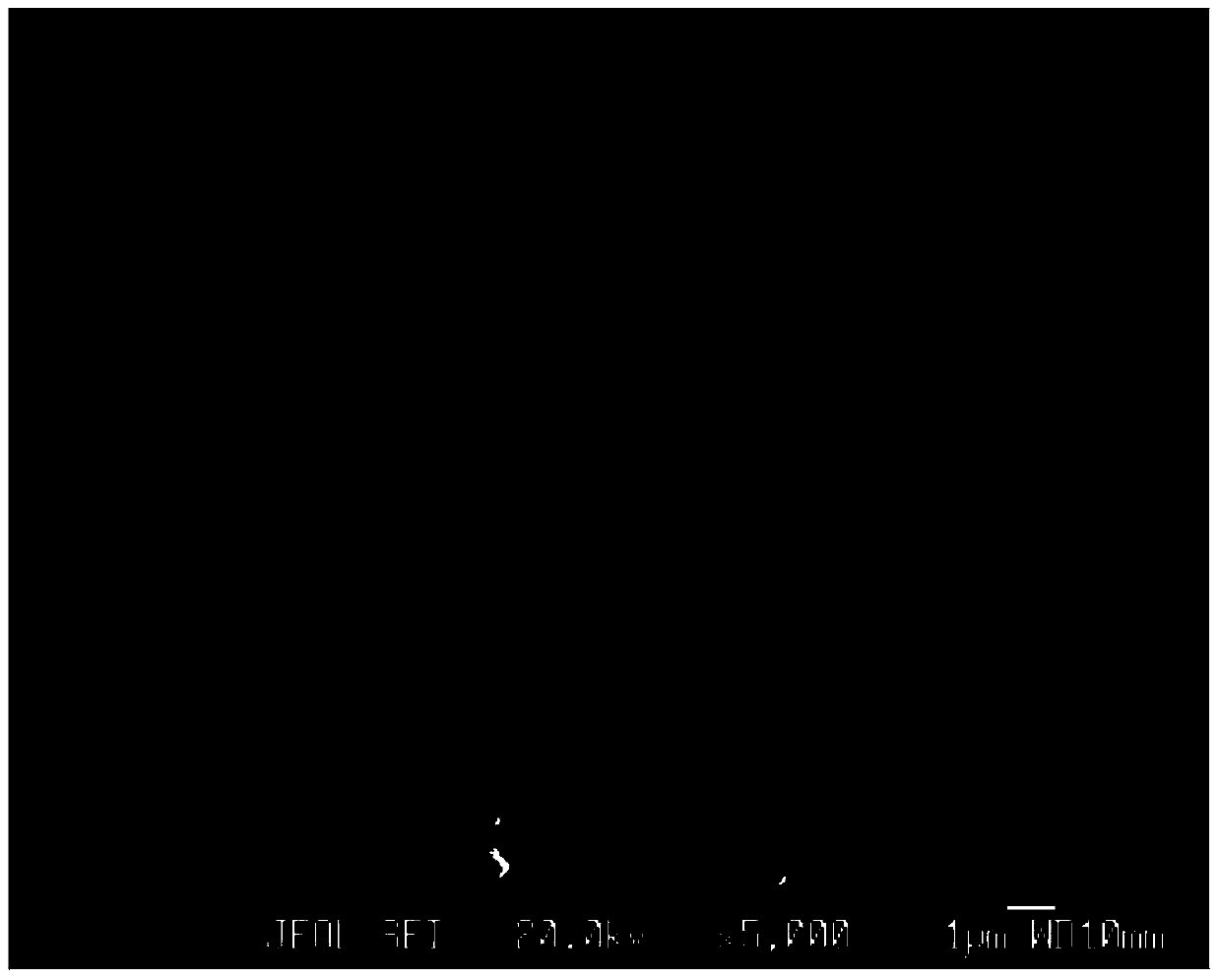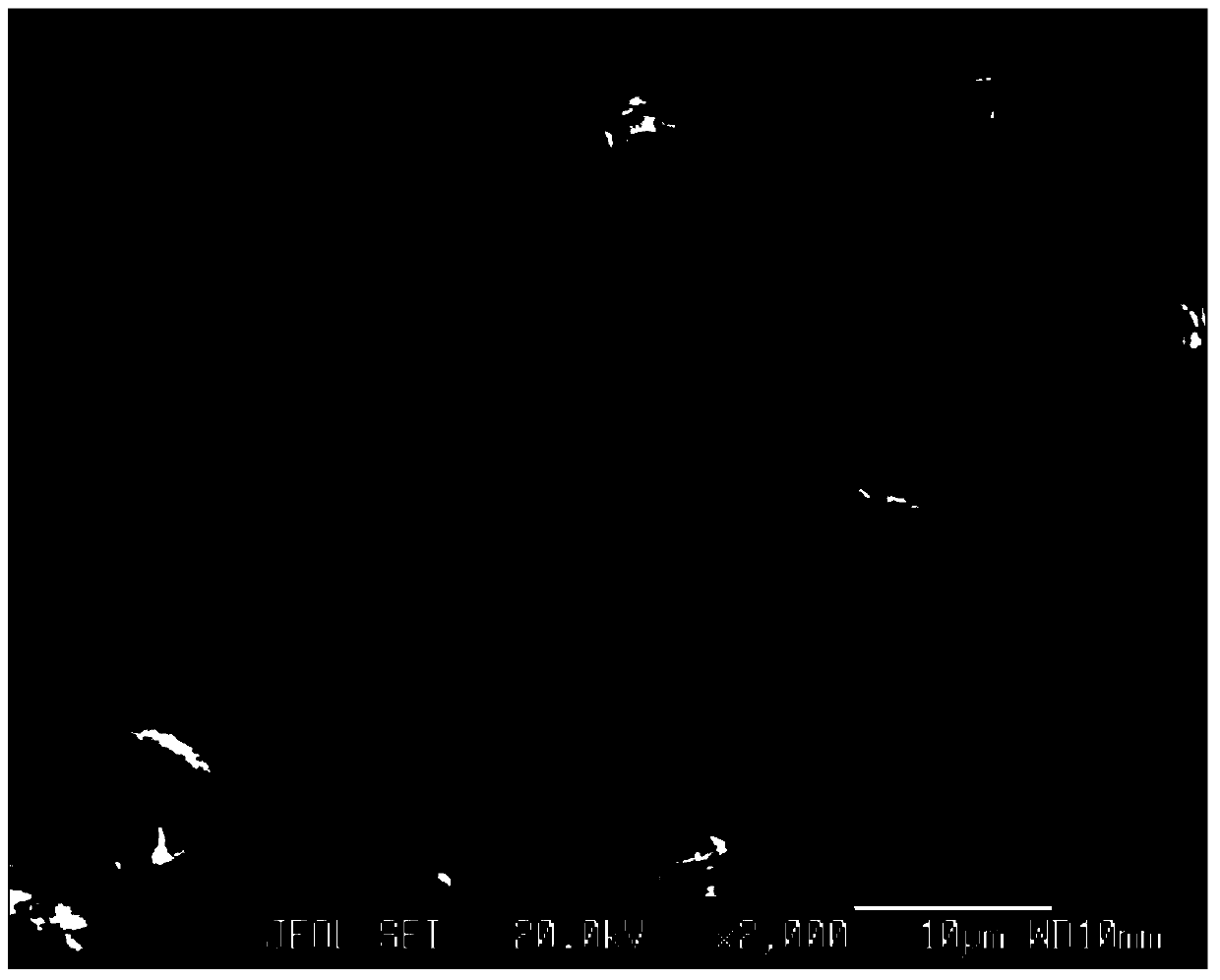Preparation method and application of active zirconium dioxide
A zirconium dioxide and active technology, applied in zirconia and other directions, can solve the problems that the composition and activity of fused zirconia cannot reach chemical zirconium, the production cost of chemical zirconium is high, and the production cost of zirconium iron red material is high. The effect of good color effect, lower production cost and high wrapping rate
- Summary
- Abstract
- Description
- Claims
- Application Information
AI Technical Summary
Problems solved by technology
Method used
Image
Examples
Embodiment 1
[0029] A preparation method of active zirconium dioxide, first mixing 100Kg of zircon sand and 5Kg of carbon black and then electro-melting and calcining to obtain desiliconized zirconium, the zircon sand is 80 mesh, the zirconium content is 66%, and then hydrogenated Sodium zirconate is obtained by alkali fusion calcination. The calcination temperature of alkali fusion calcination is 1250°C. After sodium zirconate is hydrolyzed, hydrochloric acid is added to neutralize to form zirconium hydroxide and sodium chloride, and then sodium hydroxide is added to control the pH value at 8-9. , and finally wash and remove sodium chloride and dry the material to obtain active zirconia.
[0030] The activated zirconium dioxide obtained in this example is used for the production of zirconium iron red material.
[0031] A zirconium-iron red material, prepared from the following raw materials in weight ratio: 20wt% silicon dioxide, 10wt% ferric oxide, 0.5wt% potassium fluorosilicate, 2.5wt%...
Embodiment 2
[0033] A preparation method of active zirconia, first mix 100Kg of zircon sand and 7.5Kg of graphite, then conduct electric melting and calcining to obtain desiliconized zirconium. Sodium zirconate is obtained by alkali fusion calcination. The calcination temperature of alkali fusion calcination is 1275°C. After sodium zirconate is hydrolyzed, hydrochloric acid is added to neutralize to form zirconium hydroxide and sodium chloride, and then sodium hydroxide is added to control the pH value at 8-9. , and finally wash and remove sodium chloride and dry the material to obtain active zirconia.
[0034] The activated zirconium dioxide obtained in this example is used for the production of zirconium iron red material.
[0035] A zirconium-iron red material, prepared from the following raw materials in weight ratio: 28wt% of silicon dioxide, 15wt% of ferric oxide, 1wt% of sodium fluorosilicate, 2wt% of magnesium fluoride, 2wt% of lanthanum fluoride, fluorine Ceria 2wt% and the activ...
Embodiment 3
[0037] A preparation method of active zirconium dioxide, first mix 100Kg of zircon sand and 10Kg of water-washed coal, then conduct electric melting and calcining to obtain desiliconized zirconium, the zircon sand is 120 mesh, the zirconium content is 70%, and then add sodium carbonate Alkali fusion calcination is carried out to obtain sodium zirconate. The calcination temperature of alkali fusion calcination is 1300°C. After sodium zirconate is hydrolyzed, sulfuric acid is added to neutralize to form zirconium hydroxide and sodium sulfate, and then sodium hydroxide is added to control the pH value at 8-9. Finally After cleaning and removing sodium sulfate, the material is dried to obtain active zirconia.
[0038] The activated zirconium dioxide obtained in this example is used for the production of zirconium iron red material.
[0039] A zirconium-iron red material, prepared from the following raw materials in weight ratio: 23wt% of silicon dioxide, 11.5wt% of ferric oxide, 2...
PUM
 Login to View More
Login to View More Abstract
Description
Claims
Application Information
 Login to View More
Login to View More - R&D
- Intellectual Property
- Life Sciences
- Materials
- Tech Scout
- Unparalleled Data Quality
- Higher Quality Content
- 60% Fewer Hallucinations
Browse by: Latest US Patents, China's latest patents, Technical Efficacy Thesaurus, Application Domain, Technology Topic, Popular Technical Reports.
© 2025 PatSnap. All rights reserved.Legal|Privacy policy|Modern Slavery Act Transparency Statement|Sitemap|About US| Contact US: help@patsnap.com



